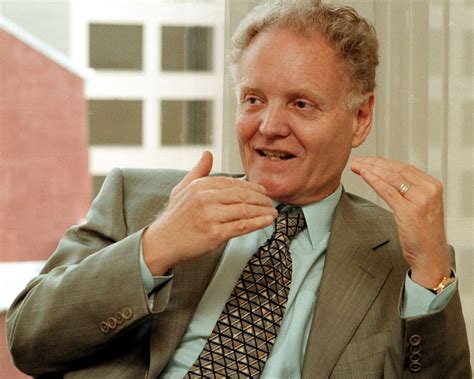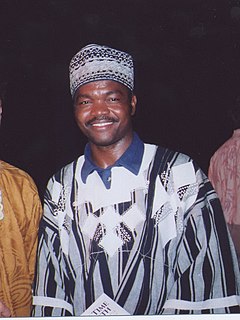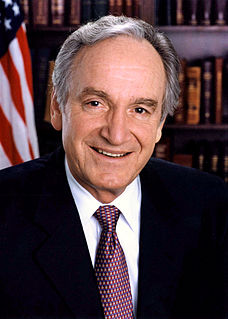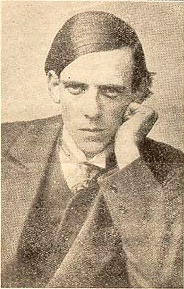Top 988 Traditions Quotes & Sayings - Page 17
Explore popular Traditions quotes.
Last updated on December 4, 2024.
Once I passed through a populous city imprinting my brain for future use with its shows, architecture, customs, traditions, Yet now of all that city I remember only a woman I Casually met there who detained me for love of me, Day by day and night by night we were together—all else Has long been forgotten by me, I remember I say only that woman who passionately clung To me, Again we wander, we love, we separate again, Again she holds me by the hand, I must not go, I see her close beside me with silent lips sad and tremulous.
There is nothing antithetical in American history, culture, or traditions to teamwork. Teams were important in America's history - wagon trains conquered the West, men working together on the assembly line in American industry conquered the world, a successful national strategy and a lot of teamwork put an American on the moon first (and thus fare, last). But American mythology extols only the individual...In America, halls of fame exist for almost every conceivable activity, but nowhere do Americans raise monuments in praise of teamwork.
Both Kant and Fichte thought of traditions of revealed religion as ways of symbolically (that is, with aesthetic emotional power) thinking about our moral condition. Both thought that religion would become more and not less powerful, emotionally and morally, if the claims of scriptures and religious teachings were taken symbolically rather than literally (whatever 'literally' might mean in the case of claims that are either nonsensical or outdated or historically unsupportable if taken as metaphysical or historical assertions).
Historically the customs and traditions of day-to-day life in Africa have been dismissed by Western cultural anthropologists as primitive, chaotic, pagan activities that should be replaced by Christianity, the only civilized religion. The West has also long assumed that it should convert tribal cultures to literacy, which is to say an entirely different way of looking at the world, of living in the world. Most Africans who have achieved a comfortable Western lifestyle are Christian. Why? Because it comes with the package: Christian-ity, literacy, and a material lifestyle all come together.
When you dig down, people are pretty progressive, by and large. I guess, I've said it many times - that a lot of people say we're a conservative country, that people are conservative. And my response to that is, yes, that's true, and you know what the people want to conserve most? The progressive traditions of our country - freedom of speech, and of the press and of assembly. Freedom to dissent. The freedom to practice your own religion or not practice religion as you see fit. Yes, we're conservative! We want to conserve those.
Because my graduate academic training at law school was not one that included most of the intellectual traditions I find useful for understanding the conditions and problems that most concern me - anti-colonial theories, Foucault, critical disability studies, prison studies and the like are rarely seen in standard US Law School curricula, where students are still fighting on many campuses to get a single class on race or poverty offered - I developed most of my thinking about these topics through activist reading groups and collaborative writing projects with other activist scholars.
It's pretty clear in how things are moving in empirically supported treatments that we're going to be speaking to the culture in a different voice. It's going to have some echoes of some of the deeper clinical and spiritual and religious traditions that had wisdom in it. If we're not going to get there through religious means and things of that kind, we're going to have to find a way to put it in the culture in a different way, because we need something right now other than yet another cable shoutcast or yet another Internet Web page showing us the cellulite on the actress's rear end.
Any country is hard to govern, even a very small country. It's not a question of whether the country is large or small. It's a question of how you relate to the work, to what extent you feel responsible for it. Russia is also hard to govern. Russia is at the development stage of both its political system and the creation of a market-based economy. It's a complicated process, but very interesting. Russia, actually, is not just a large country, it's a great country. I mean its traditions, and its cultural particularities.
When we seek a textbook case for the proper operation of science, the correction of certain error offers far more promise than the establishment of probable truth. Confirmed hunches, of course, are more upbeat than discredited hypotheses. Since the worst traditions of "popular" writing falsely equate instruction with sweetness and light, our promotional literature abounds with insipid tales in the heroic mode, although tough stories of disappointment and loss give deeper insight into a methodology that the celebrated philosopher Karl Popper once labeled as "conjecture and refutation.
I see the Christian world like this: we've inherited a divided map of the truth, and each of us has a piece. Our traditions teach us that no one else has a valid map and that our own church's piece shows us all the terrain and roads that exist. In fact, there is much more terrain, more roads, and more truth for us to see if we can accept and read one another's maps, fitting them together to give us a clearer picture of the larger Christian tradition.
I often say that I'm a Buddhist-Episcopalian. I say that partly to annoy people.I like to annoy people who think that a religion can contain the whole truth. No religion, it seems to me, contains the whole truth. I think it's mad to think that there is nothing to learn from other traditions and civilizations. If you accept that other religions have something to offer and you learn from them, that is what you become: a Buddhist-Episcopalian or a Hindu-Muslim or whatever.
Early on, I learnt from the Russian intelligentsia that the only meaning of life lies in conscious participation in the making of history. The more I think of that, the more deeply true it seems to be. It follows that one must range oneself actively against everything that diminishes man, and involve oneself in all struggles which tend to liberate and enlarge him. This categorical imperative is by no way lessened by the fact that such an involvement is inevitably soiled by error: it is a worse error merely to live for oneself, caught within traditions which are soiled by inhumanity.
On this day, millions of people...throughout the world will gather to commemorate the life of Patrick, patron saint of Ireland. From his days as a slave in Ireland to his work as missionary years later, St. Patrick demonstrated a courage, commitment, and faith that won the hearts and minds of the Irish people. St. Patrick's Day also serves as a time for people of Irish descent from all traditions and religions to honor their native land and shared heritage. Their devotion to family, faith, and community has strengthened our country's character.
We're in a very, very profound crisis. It's so obvious that no one in the power structure, either the corporate power structure or the political power structure, knows what to do or is willing to do what's necessary in relationship both to global war and global warming. It's so obvious that conditions are getting worse for the great majority of Americans. It's so obvious also that we face a very serious danger from people who feel, see themselves only as victims. And we have to somehow, in a very loving way, help the American people to recover the best that is in our traditions.
The very word "secrecy" is repugnant in a free and open society; and we are as a people inherently and historically opposed to secret societies, to secret oaths and to secret proceedings. We decided long ago that the dangers of excessive and unwarranted concealment of pertinent facts far outweighed the dangers which are cited to justify it. Even today, there is little value in opposing the threat of a closed society by imitating its arbitrary restrictions. Even today, there is little value in insuring the survival of our nation if our traditions do not survive with it.
Easter occurs on different dates each year because, like the Jewish Passover, it is based upon the vernal equinox, that dramatic moment when the hours of the day-light and the hours of darkness at last draw parallel and then the light finally and triumphantly wins out. Thus Easter is always fixed as the first Sunday after the first full moon following the spring equinox. It's a cosmic, solar, and lunar event as deeply rooted in religious traditions originating from sun-god worship as one could conceivably imagine.
If we look at the last decades, we see that the US rightist-fundamentalist alliance demonized partnership-oriented families and painted women's rights as a threat to "tradition" - which of course it is to traditions of domination. These people had an integrated political agenda that recognizes that a "traditional" authoritarian, male dominated, punitive family is foundational to an authoritarian, male dominated, punitive politics. We can see this connection in sharp relief in brutal top-down regimes, be they secular like Nazi Germany or religious like ISIS in the Middle East.
It is probably true quite generally that in the history of human thinking the most fruitful developments frequently take place at those points where two different lines of thought meet. These lines may have their roots in quite different parts of human nature, in different times or different cultural environments or different religious traditions: hence if they actually meet, that is, if they are at least so much related to each other that a real interaction can take place, then one may hope that new and interesting developments may follow.
It's funny that Chairman Mao's great hero was Napoleon, because Napoleon started out as a revolutionary for the underdogs and then made himself an emperor. In fact, a lot of revolutionary leaders do that, and you think, "Well, that's spoiling your argument. What are you doing?" But on the other hand, the people themselves are enjoying trying out all these different ways to be. I hope that, like the Japanese, the Chinese hang on to their own traditions as well as try out Western ones. I hate it when people just lose so much confidence in who they are that they abandon their own culture.
I have no expertise of other religious traditions so I'm not going to opine on them, but in Islam the more you know about the religion, the more likely you're going to go to hell. Many people will find that paradoxical because we tend to think of religion as a way of making ourselves feel better and a way of damning and excluding infidels or reprobates or heretics or what have you. It was very hard for me to find an Islam that belongs to me and doesn't feel like it's been imposed on me.
It is one of the paradoxes of parenting, and often a painful paradox, that even as our children need us for love and trust, they also need us for honest differing. It's not only over limits and rules...[but also] about what we represent in the way of culture, traditions, and values. We owe it to our children to let them know what we believe, and if they differ with us, we owe it to them to be honest adversaries, for it is through this honest confrontation that children can grow into adults who have a firm sense of their place in the sequence of the generations.
It's always been you know, religion that has been the primary impediment to actual relationship with God, because it creates a mythology about performance -- that you can perform your way into the appeasement of the deity. And you know, when you're born inside the cultural framework that I was, and you're born inside the religious traditions that I was, that becomes your understanding of spirituality: That it's about trying to please God. So, it's really not about God at all; it's about our ability to perform according to whatever the expectations are.
Few countries have produced such arrogance and snobbishness as America. Particularly is this true of the American woman of the middle class. She not only considers herself the equal of man, but his superior, especially in her purity, goodness, and morality. Small wonder that the American suffragist claims for her vote the most miraculous powers. In her exalted conceit she does not see how truly enslaved she is, not so much by man, as by her own silly notions and traditions. Suffrage can not ameliorate that sad fact; it can only accentuate it, as indeed it does.
Once again we find ourselves enmeshed in the Holiday Season, that very special time of year when we join with our loved ones in sharing centuries-old traditions such as trying to find a parking space at the mall. We traditionally do this in my family by driving around the parking lot until we see a shopper emerge from the mall, then we follow her, in very much the same spirit as the Three Wise Men, who 2,000 years ago followed a star, week after week, until it led them to a parking space.
He had been to see Mrs. Erlich just before starting home for the holidays, and found her making German Christmas cakes. She took him into the kitchen and explained the almost holy traditions that governed this complicated cookery. Her excitement and seriousness as she beat and stirred were very pretty, Claude thought. She told off on her fingers the many ingredients, but he believed there were things she did not name: the fragrance of old friendships, the glow of early memories, belief in wonder-working rhymes and songs.
The old Catholic church traditions are worth more than all you have said. Here is a principle of logic that most men have no more sense than to adopt. I will illustrate it by an old apple tree. Here jumps off a branch and says, I am the true tree, and you are corrupt. If the whole tree is corrupt, are not its branches corrupt? If the Catholic religion is a false religion, how can any true religion come out of it? If the Catholic church is bad, how can any good thing come out of it?
Because everybody who has ever lost their way in life has felt the nagging insistence of that question. At some point we all look up and realize we are lost in a maze, and I dont want us to forget Alaska, and I don't want to forget that even when the material we study seems boring, we're trying to und3erstand how people answered that question and the question each of you posed in your papers--how different traditions have come to terms with what Chip, in his final, called 'people's rotten lots in life.
Give us our parliament in Scotland. We will start with no traditions. We will start with ideals. We will start with purpose, with courage. We will start with the aim and object that there will be 134 men and women, pledged to 134 Scottish constituencies, to spend their whole brain power, their whole courage and their whole soul in making Scotland into a country in which we can take people from all the nations of the earth and say: this is our land, this is our Scotland, these are our people, these are our men, our works, our women and children: can you beat it?



























